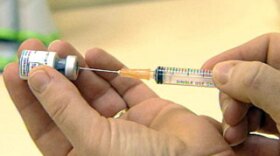Business optimism fell to a low point not seen since the Great Recession. But tucked in the latest survey of chief financial officers are breadcrumbs of hope for reviving the economy after the coronavirus pandemic passes.
The survey findings come from latest Duke University, CFO Global Business Outlook survey, which has been conducted for 96 consecutive quarters. Timing of this survey showed the exact moment at which business leaders began to see the coronavirus as a major threat to the economy.
The survey was conducted over five weeks from February 25 through April 3, and the point of demarcation was over the weekend of March 15, according toJohn Graham, a finance professor at the Duke Fuqua School of Business and director of the survey.
"What's really remarkable is we had the survey open five weeks, and the first two weeks before March 15, were more or less normal," Graham said. "And so what surprised me was the magnitude of the drop in the outlook from one week to the next, and I think we're still in that lower level."
President Donald Trump officially declared a national emergency on Friday, March 13. The survey calculates an optimism index on a score of 0-100. In those first weeks of March, the score was 58, but sank to 42 by the end of March.
"We have already seen a bigger jump in unemployment in the past three weeks than during the entire Great Recession, so there is good reason why optimism has fallen," said Campbell Harvey, a founding director of the survey and Fuqua finance professor. "CFOs are fighting their own war for the survival of their companies."
Still, Graham says there's reason to hope for a quick recovery when the coronavirus pandemic ends. The economy was in good shape, and it's possible it could snap back more quickly than in previous recessions.
"Many of the employees that have been laid off so far are from restaurants and other service functions. And those jobs can be added back pretty quickly," he said.
Furthermore, the coronavirus will ultimately be defeated. At some point, a combination of herd immunity and modern medicine will see humanity beat the virus.
"And so there is sort of an end in sight," Graham said. "We don't know exactly where it is, but it's not that far out there. Whereas with the recession from 10 years ago, it really wasn't clear where the end was. And so here, it does seem like we should be able to recover sooner and more robustly than last time."








